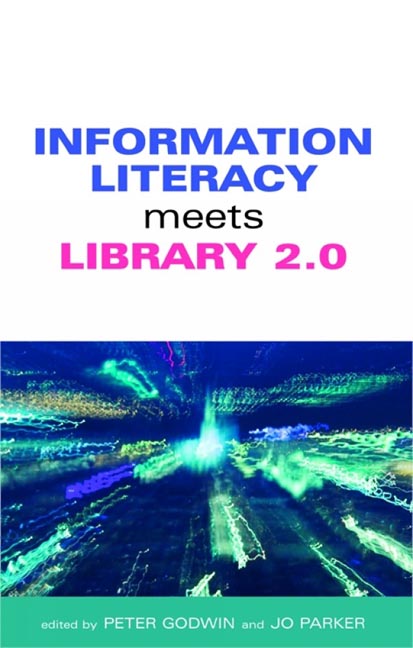Crossref Citations
This Book has been
cited by the following publications. This list is generated based on data provided by Crossref.
Secker, Jane
2008.
Social software and libraries: a literature review from the LASSIE project.
Program,
Vol. 42,
Issue. 3,
p.
215.
Read, Katherine
and
Griffiths, Laura
2008.
Current Awareness.
Legal Information Management,
Vol. 8,
Issue. 3,
p.
226.
Godwin, Peter
2009.
Information literacy and Web 2.0: is it just hype?.
Program,
Vol. 43,
Issue. 3,
p.
264.
Cronin, Kieran
and
O'Brien, Terry
2009.
Practical low‐cost marketing measures.
New Library World,
Vol. 110,
Issue. 11/12,
p.
550.
Fernandez-Villavicencio, Nieves González
2010.
Helping students become literate in a digital, networking-based society: A literature review and discussion.
International Information & Library Review,
Vol. 42,
Issue. 2,
p.
124.
McShane, Ian
2011.
Public libraries, digital literacy and participatory culture.
Discourse: Studies in the Cultural Politics of Education,
Vol. 32,
Issue. 3,
p.
383.
Sun, Hao‐Chang
Chen, Kuan‐nien
Tseng, Chishu
and
Tsai, Wen‐Hui
2011.
Role changing for librarians in the new information technology era.
New Library World,
Vol. 112,
Issue. 7/8,
p.
321.
Walton, Geoff
and
Hepworth, Mark
2011.
A longitudinal study of changes in learners' cognitive states during and following an information literacy teaching intervention.
Journal of Documentation,
Vol. 67,
Issue. 3,
p.
449.
Blank, Grant
and
Reisdorf, Bianca C.
2012.
THE PARTICIPATORY WEB.
Information, Communication & Society,
Vol. 15,
Issue. 4,
p.
537.
Virkus, Sirje
2013.
Information Literacy beyond Library 2.0.
Journal of Documentation,
Vol. 69,
Issue. 2,
p.
321.
2014.
Technology and Professional Identity of Librarians.
p.
110.
Kannikaparameshwari, G.
and
Chandrashekar, M.
2018.
Adoption of Web 2.0 in African National Libraries: An Evaluative Study.
SRELS Journal of Information Management,
p.
169.
Son, Suhyoung
2024.
Libraries’ roles in media and information literacy education: Obtaining the opinions of South Korean volunteer librarians through the Delphi method1.
IFLA Journal,



